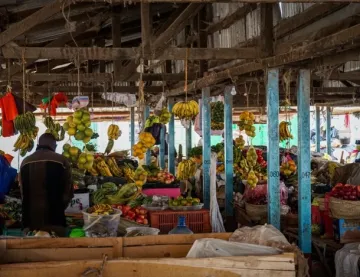
Urban food systems (UFS) in southern Africa comprise a hybrid mix of food sourcing opportunities from formal and informal food retailers, including open-air markets, street vendors, small shops, and supermarkets, as well as household-level strategies, such as urban agriculture and food sharing. Despite this diversity, many low- to middle-income urban households experience high rates of food insecurity due to a lack of sufficient and stable income to purchase adequate amounts of safe and nutritious food to meet their needs. Urban household incomes have become even more variable and unstable because of economic pressures associated with the COVID-19 pandemic, food price shocks linked to disrupted food supply chains, and the impacts of climate variability on regional food production. A UAz and southern Africa scholar-practitioner working group will develop a peer-reviewed synthesis paper in a special issue journal, an op-ed, and policy brief to assess the resilience and equitability of UFS in Zambia, South Africa, and Zimbabwe. Partners include members from the University of Cape Town, University of Zimbabwe, Indiana University, and Zambia Ministry of Agriculture. The working group will attend the Southern African Resilience Academy, which is hosted by the Centre of Sustainability Transitions at Stellenbosch University. The working group is funded by the Global Resilience Partnership.
Project Point of Contact: Corrie Hannah, corrieh@email.arizona.edu

